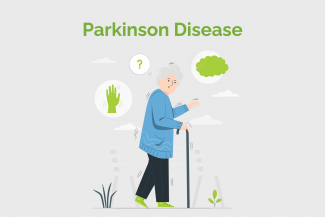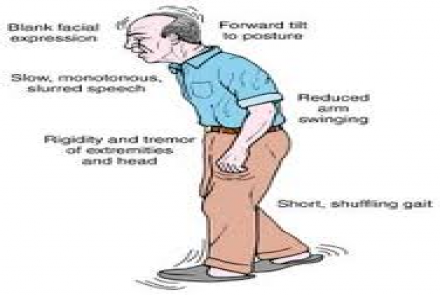Parkinson’s disease is a progressive neurological disorder caused by malfunction and death of nerve cells (neurons) in the brain. Because of the death of nerve cells, people with Parkinson’s don’t have enough of the chemical Dopamine. This causes their movements to slow down. Symptoms get worse over time.
An estimated 7 to 10 million people worldwide are living with Parkinson’s Disease. These numbers are projected to escalate sharply as more people live longer.

Living with Parkinson’s disease
Everyday activities can be a challenge. You can still do things but you may have to tackle it in a different way. Here are some ideas:
- Plan your daily activities ahead of time
- Do not do many things in one day
- Space your work throughout the day
- Simplify your tasks
- Plan periods of rest everyday
- If you become tired during an activity, stop and rest
- Avoid extreme physical activities
- Do not plan activities immediately after a meal. Rest after a meal
- Get dressed sitting in a chair with arm rest for balance
- Roll from side to side to pull your pants over the hip either sitting in a chair or lying down in bed
- Wear loose fitting clothes
- Wear wrap rounds instead of pull over clothes
- Wear dresses with large buttons, zippers, Velcro closures and elastic waistbands
- Wear slip-on shoes instead of shoes with lace
- Get help from your caregivers, don’t try to do all work by yourself
Is there any special diet
There is no special diet to be followed in Parkinson’s. A balanced diet, eating regularly without skipping meals and maintaining a healthy weight will help. As food interferes with absorption of Levodopa (Medical therapy for Parkinson’s), it must be taken half an hour prior or one hour after meals.
At advanced stages, if the patient has problems swallowing, he should be given mashed food to avoid choking.
Know your support team: Who can help you stay healthy
- A referral to a neurologist, a doctor who specialises in the brain
- Supportive therapy from an occupational therapist, physical therapist or speech therapist
- Interaction with a medical social worker to talk about how Parkinson's will affect your life
Changed
27/Oct/2015
Condition











